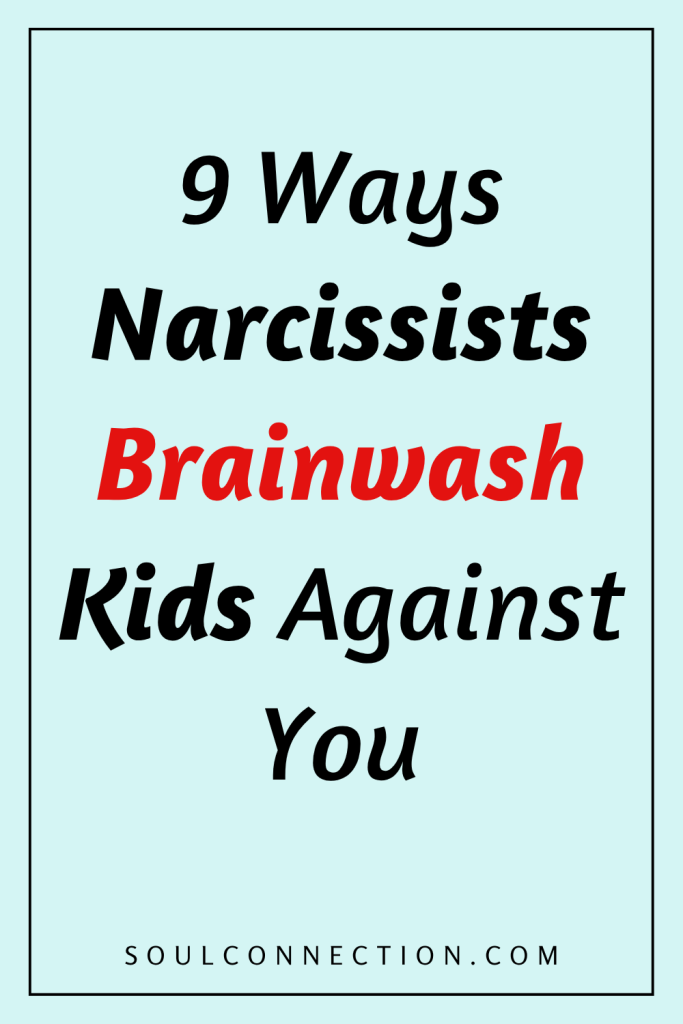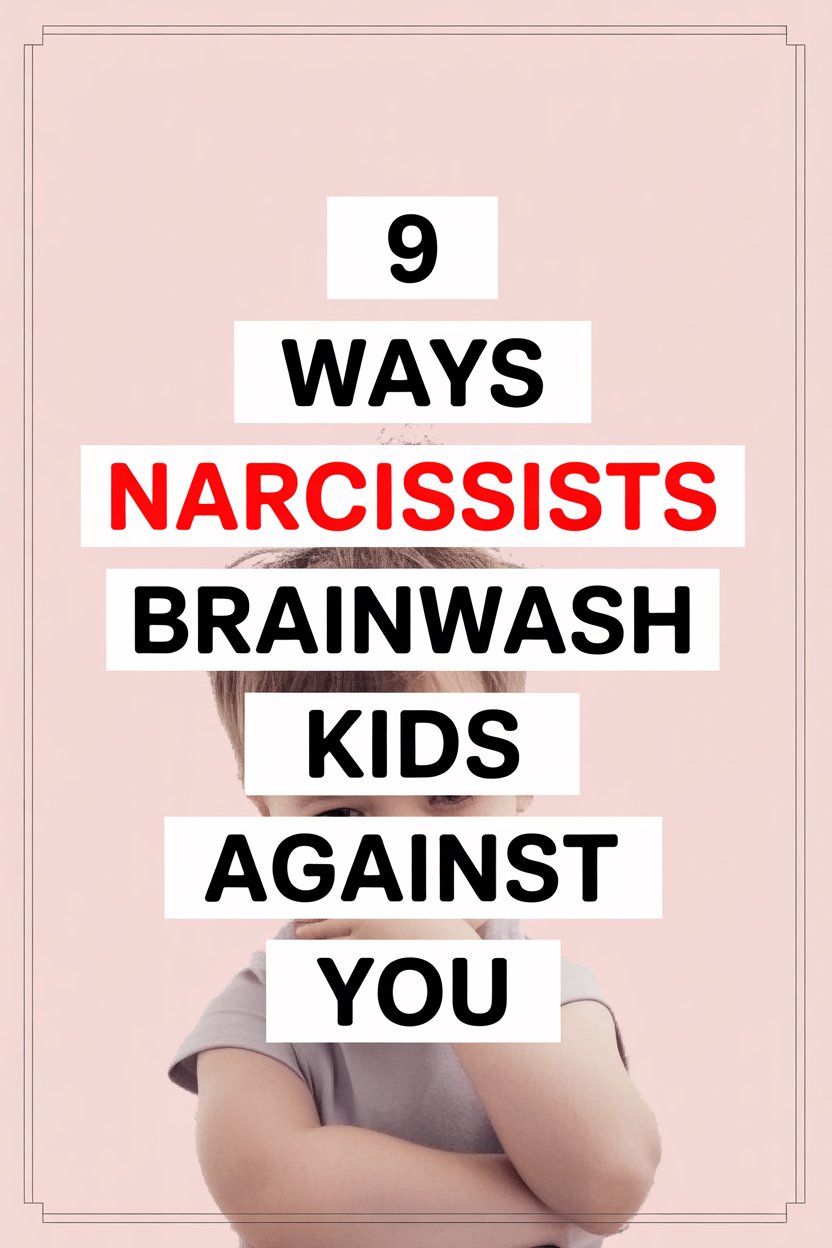Ever feel like you’re starring in the world’s worst soap opera, guest-starring your own children? If your ex or co-parent has a black belt in manipulation, you might be living it for real.
Narcissists aren’t satisfied tormenting one adult at a time—they’ll rope the kids into their drama, too. And, oh boy, do they have tricks up their sleeve for making you look like the villain in your own family story.
Spotting these tactics is like finding glitter in your carpet: once you know what to look for, you see it everywhere. Grab your emotional dustpan—here’s what’s happening behind the scenes.
1. Twisting the Truth Until It Snaps
A narcissist never met a fact they couldn’t bend, stretch, or snap in half. Did you arrive five minutes late to pick up the kids? Suddenly, you’re always unreliable and “never put them first.”
A forgotten text about soccer practice morphs into ironclad proof that you don’t care.
Kids crave certainty, so when the narcissist parent retells events with Oscar-worthy embellishments, it’s easy for young minds to believe the tall tales.
And when one parent says, “That never happened,” while the other insists, “It did, and here’s why you should be upset,” confusion reigns.
Eventually, the kids pick a side—usually the one offering simple answers (and, let’s be real, fewer consequences).
2. Weaponizing Guilt Like a Pro
If there were medals for guilt-tripping, narcissists would sweep the podium. They’ll tell the kids you’re “making them sad” by enforcing rules or “ruining family time” by sticking to custody agreements.
The subtext is always: “If only your other parent wasn’t such a stick in the mud, we’d all be happier.” This puts your child on the emotional battlefield, feeling as if loving you means hurting the other parent. Manipulation, table for two.
3. Inventing a Fantasy Version of Themselves
Narcissists are experts at playing the hero—at least in their own fairy tales. They might regale the kids with stories about all the sacrifices they’ve made, or how hard they work to keep everyone happy.
Meanwhile, your efforts vanish like socks in a dryer.
This glossy self-portrait is all about comparison. Suddenly, you’re getting side-eye from your own child for crimes like serving broccoli or asking about homework.
Compared to the narcissist’s glittering, faultless persona, reality just doesn’t stack up.
4. Playing the Victim Card (Again and Again)
Few things get a kid’s sympathy like a parent who claims they’re being “picked on.” Narcissists sprinkle their conversations with phrases like “Your other parent hates me” or “I’m always left out.”
The goal? Make your child feel responsible for cheering up or protecting the “wounded” parent.
Next thing you know, the kiddo is acting chilly toward you—not because they’re mad, but because they’re on a rescue mission for someone who’s milking their pain for all it’s worth.
5. Controlling the Narrative Around New Partners
Heaven forbid you dip your toe back in the dating pool. Suddenly, your co-parent is warning the children about “strangers” or insisting your new partner “doesn’t really care about you.”
Expect whispered warnings and wild accusations about your love life.
This isn’t parental concern; it’s sabotage. If the kids come to associate your happiness with betrayal, guess who gets painted as the villain? (Hint: it’s not the narcissist.)
6. Distributing Rewards and Punishments Like a Game Show Host
“Who wants to go to Disney World? But only if you want to live with me full time.” Narcissists lavish the children with treats, gifts, and special outings—conditional on taking their side, of course.
Meanwhile, visits with you might be painted as dull, strict, or joyless. Why choose broccoli night when there’s ice cream and late bedtimes with the other parent? The message is clear: loyalty comes with perks.
7. Eavesdropping and Spying on You
Ever notice the kids asking really odd questions about your private life? Or repeating phrases you know you never taught them?
Sometimes, narcissistic parents prod their children to report back. “What did Mom say about the trip?” “Did Dad have anyone over?”
It’s not curiosity—it’s reconnaissance. Kids aren’t just put in the middle; they’re turned into little spies. It’s hard to build trust when your family dinner feels like a police interview.
8. Discouraging Communication Completely
Direct conversation between you and your kids? Can’t have that. Narcissists often intercept text messages, “forget” to pass along notes, or invent reasons why the child can’t talk to you.
Little by little, your connection is eroded. Missed events, unanswered calls, and “lost” messages become routine, and the kids learn to keep their distance. It’s like social distancing, only with more emotional scarring.
9. Rewriting Family History
Remember that time you pulled off a Christmas miracle? Funny, the narcissist doesn’t. In fact, according to them, it either didn’t happen or it was “all their idea.”
Milestones are appropriated, rewritten, and retold with the narcissist at the center.
By reshaping family narratives, they steal your place in your child’s memories. Suddenly, you’re the blurry background character in your own story, while the narcissist basks in the spotlight.
What to Do When the Script Feels Rigged
Spotting these tactics is half the battle, but what’s a parent supposed to do after the curtain drops?
Since sending your ex to Mars isn’t on the table, here are sanity-saving steps that put the power back in your hands—without turning you into a contestant in their circus.
- Document Everything: When you spot manipulation, jot it down. Save messages, note dates, and keep a log. Judges love evidence, not drama.
- Keep It Calm: Stay Switzerland. Raising your voice, criticizing your ex, or “setting the record straight” with rants only feeds the narcissist’s narrative. Instead, answer questions simply and let your behavior speak for itself. Kids spot genuine love in the wild.
- Empower the Kids: Instead of bad-mouthing, encourage your children to trust their own experiences. “How did you feel about that?” goes a lot further than “Your dad’s a liar.”
- Build Routines: Consistency beats chaos every time. Create your own family rituals, however small. Pancake Sundays or movie nights can anchor your child in positivity.
- Seek Professional Backup: Therapists, especially those who get high-conflict families, can work wonders. Sometimes an outside voice is exactly what your child needs.
- Be Patient: Kids often gravitate toward the “fun” or “easier” parent at first, but emotional honesty wins out in the long run. You’re playing the long game here, not chasing quick wins.
It’s Not You—It’s the Manipulation
Narcissistic brainwashing can make you question your own reality, never mind your parenting chops. Kids may parrot shocking things or pull away, and it stings more than stepping on a Lego barefoot.
This isn’t a sign you’re losing them—it’s a sign you’re up against dirty tricks. Keep showing up with love, boundaries, and empathy, even on the days when you want to scream into a pillow.
Your authenticity leaves a mark, even if progress feels glacial.
The script may be rigged, but your relationship with your child is still yours to write.
And, let’s be honest, nobody does “real” like you.


